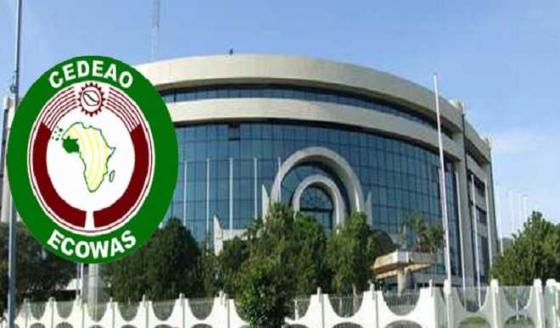Liberia: Will Pres. Weah Commit Liberian Soldiers to ECOWAS Force for Niger Intervention?

President George Weah finds himself facing a weighty decision as to whether or not he will deploy Liberian military personnel to an ECOWAS force that is reportedly preparing to intervene in Niger to reinstall ousted President Mohammed Bazoum.
Bazoum was overthrown on July 26 in a coup led by his presidential guards, and his rule is now being backed by the military.
ECOWAS, which has slapped sanctions on Niger leading to Nigeria cutting electricity supplies and closing its borders with its poor neighbor, has seen the coup leaders refuse to restore the Bazoum government as a seven-day ultimatum ends tomorrow.
The bloc defense chiefs have drawn up a plan for military action, as part of which Nigeria, Ivory Coast, Senegal, and Benin have all said they are willing to send troops into Niger if the bloc decides to do so.
But Liberia, whose Chief of Army Staff attended the bloc defense chief meeting, has yet to confirm whether Liberian soldiers will be part of the ECOWAS intervention force.
According to sources close to the Liberian administration, Weah has not yet reached a definitive conclusion on whether to contribute Liberian military personnel to the ECOWAS mission.
The decision is said to be laden with complex considerations, including the potential implications for Liberia's own security and stability, as well as its commitment to regional peacekeeping efforts.
ECOWAS, an organization dedicated to fostering economic integration and cooperation among West African nations, has a history of intervening in member states facing political crises to ensure stability and democracy.
However, such interventions have also raised concerns about the potential for military involvement to escalate conflicts and further destabilize fragile political landscapes.
Meanwhile, Abdel-Fatau Musah – ECOWAS Commissioner for Political Affairs,Peace and Security – said on Friday any decision of military intervention is expected to be taken by the bloc’s heads of state.
“All the elements that will go into any eventual intervention have been worked out here, including the resources needed and how and when we are going to deploy the force,” Musah said at the close of a three-day meeting in Nigeria’s capital, Abuja.
“We want diplomacy to work, and we want this message clearly transmitted to them that we are giving them every opportunity to reverse what they have done,” he added.
Nigerian President Bola Tinubu told his government to prepare for options, including the deployment of military personnel, in a letter read out to the Senate on Friday.
Tinubu's request has, however, been denied today by the Nigerian Senate -- complicating matters for Nigeria's participation in the ECOWAS led force. Tinubu is yet to respond to the Senate vote.
Critics of any Liberian involvement have argued that the country should prioritize its own development and security concerns before committing troops to a foreign conflict.
They point to the potential risks and costs associated with such an intervention, both in terms of human lives and economic resources.
However, supporters of Liberia's involvement, however, stress the importance of ECOWAS solidarity and regional stability.
They argue that lending support to the intervention aligns with the country's historical commitment to peacekeeping efforts and sends a strong message of unity within the West African region.
Niger’s military rulers have meanwhile denounced outside interference and said they would fight back.
The 59-year-old coup leader, Abdourahamane Tchiani, served as battalion commander for ECOWAS forces during conflicts in Ivory Coast in 2003, and is now getting support from military leaders in neighboring Mali and Burkina Faso, which are both ECOWAS members.
The two countries have said they would come to Niger’s defence.
Meanwhile, Aljazeera is reporting that Niger’s coup generals have asked for help from the Russian mercenary group Wagner as the deadline nears for them to release the country’s removed president or face possible military intervention by the West African regional bloc.
The request came during a visit by a coup leader – General Salifou Mody – to neighboring Mali, where he made contact with someone from Wagner, Wassim Nasr, a journalist and senior research fellow at the Soufan Center, told The Associated Press.

